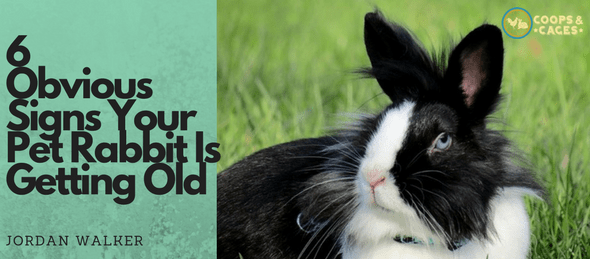Rabbits
6 Obvious Signs Your Pet Rabbit Is Getting Old
Of course, you have had fun and memorable times with your rabbit. But as time passes more quickly, you might not notice that your pet rabbit grows old as well. It will all come to such point one day. So if you think you still have much time, keep them happy and observe any of these signs that your rabbit is getting older. There is no better time to do that than now!
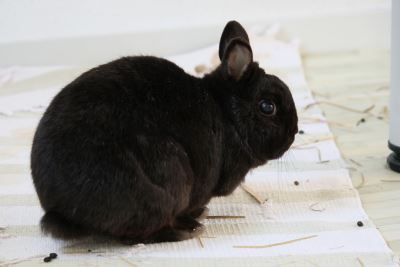
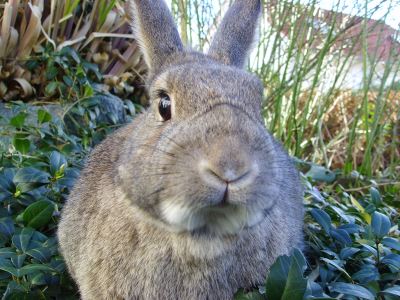
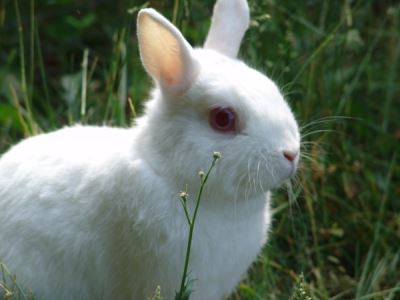
1. Longer and more nap times
Just like human beings, rabbits tend to nap more as they get older. As you can see, your rabbit takes longer naps or sleeps more often. That is completely normal and is a part of getting old. Just make sure though, that you have a nice soft thick bed or a comfortable rabbit hutch for your bunny to rest on. He will need to have several comfy spots to sleep.
2. Not getting around more often and that grumpy feels
You may notice that when your rabbit wakes up, he may be a bit stiff. He might have difficulties jumping up onto the couch, he no longer races around, he does not mingle with the rest of his kind, and does binkies less than the usual.
Well, it could only mean one thing. Rabbits do get arthritis as they get older, just like us. If you suspect that your pet has it, don’t wait for the worst to happen. Go to your rabbit’s veterinarian right away. Usually, an x-ray will be used to find out if it is arthritis. The vet will then prescribe medications to help reduce the inflammation and pain, and might even suggest other painless treatments.
3. Ignoring the litter box
Depending on how severe the arthritis is, your rabbit could get very stiff and suffer so much pain to the point that he could no longer hop into his litter box.
Truth be told, rabbits really like using the litter box. Thus, if you notice he is having a hard time, change things a bit. Allow him to continue using the box by buying those litter boxes that feature a low lip.
Aside from providing an accessible litter box, everything else should remain the same. And don’t forget to use a rabbit-safe litter and then, cover it with hay.
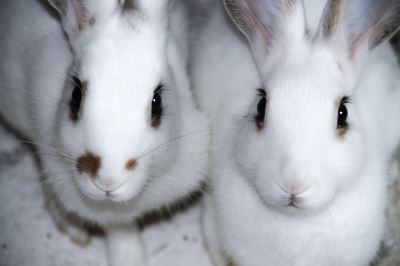
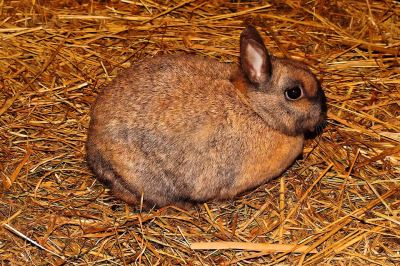
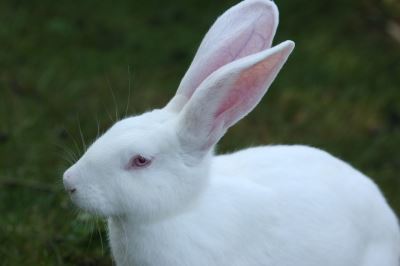
4. Not grooming like the usual
Sometimes, senior or old rabbits topple over when grooming. That is because they are having a hard time doing so. You may notice that these older bunnies have visible white flakes on the skin that look like dandruff, have urine on the fur within their back legs, and have poop stuck to their bottom. Again, that is normal and it occurs because it is hard for them to bend, balance, twist around, sit, and stand to groom.
Do not feel pity though. You can help by brushing them to get rid of all the loose hair. Senior rabbits will enjoy a soft scratching too since it will be difficult for them to do it themselves.
If your bunny experiences tooth problems, that could also make things more complicated because it can hinder their ability to groom themselves.
In addition, keep your bunny’s toenails trimmed. Keep his scent glands clean as well. Over time, wax may have build up in the ears. If you are not sure what to do, ask the vet to show you the right way.
Lastly, an older rabbit becomes more prone to fur mites. Hence, if you see white flakes on his skin, take him to his vet for a checkup. A veterinarian can tell whether those white substances are mites and how the problem can be treated.
5. Weight Changes
Senior rabbits can gain weight fast due to eating without exercise. However, they can lose weight too. Just make sure you stick to offering your pet a healthy diet. As he ages, consult with his veterinarian for any changes.
If a rabbit is overweight, it is best to encourage exercise and reduce the intake of any sugary treats. Being overweight may put your rabbit at risk for heart diseases and sore hocks.
But if a rabbit is underweight, make sure you increase your rabbit’s pellet portion to make him gain weight. Again, don’t overdo the formula, because you still want him to eat hay. You may begin by switching to an alfalfa-based pellet since it has more calories.
During the process, if your rabbit is experiencing urinary tract problems, such as bladder sludge or stones, consult the vet.
Better yet, try other healthy treats. Just be careful not to give them excessively. Often times, a rabbit’s likes and dislikes change, and in the long run, a rabbit can become a picky eater.
If your rabbit is not gaining weight after making the some changes in his diet, try adding a small amount of oats. It should encourage eating and weight gain instantly.
Do not forget to weigh your rabbit every now and then to track his weight improvements. Take note of them in your calendar, and as you visit the vet, take your notes with you.
6. Not Being Able to See Clearly
Rabbits also suffer cataracts and may go completely blind. But the interesting thing is that rabbits adjust very well to blindness. Even so, that does not mean you don’t have to do anything. Make life easier for them by keeping their living quarters free from mess. Guide them as they familiarize their surroundings and make sure they don’t bump into anything.
If you suspect any of these signs, do help your fur babies and assist them. It won’t be very easy, but if you truly care for them, this should not be an issue.
Image Sources: [1] [2] [3] [4] [5] [6] [7]



